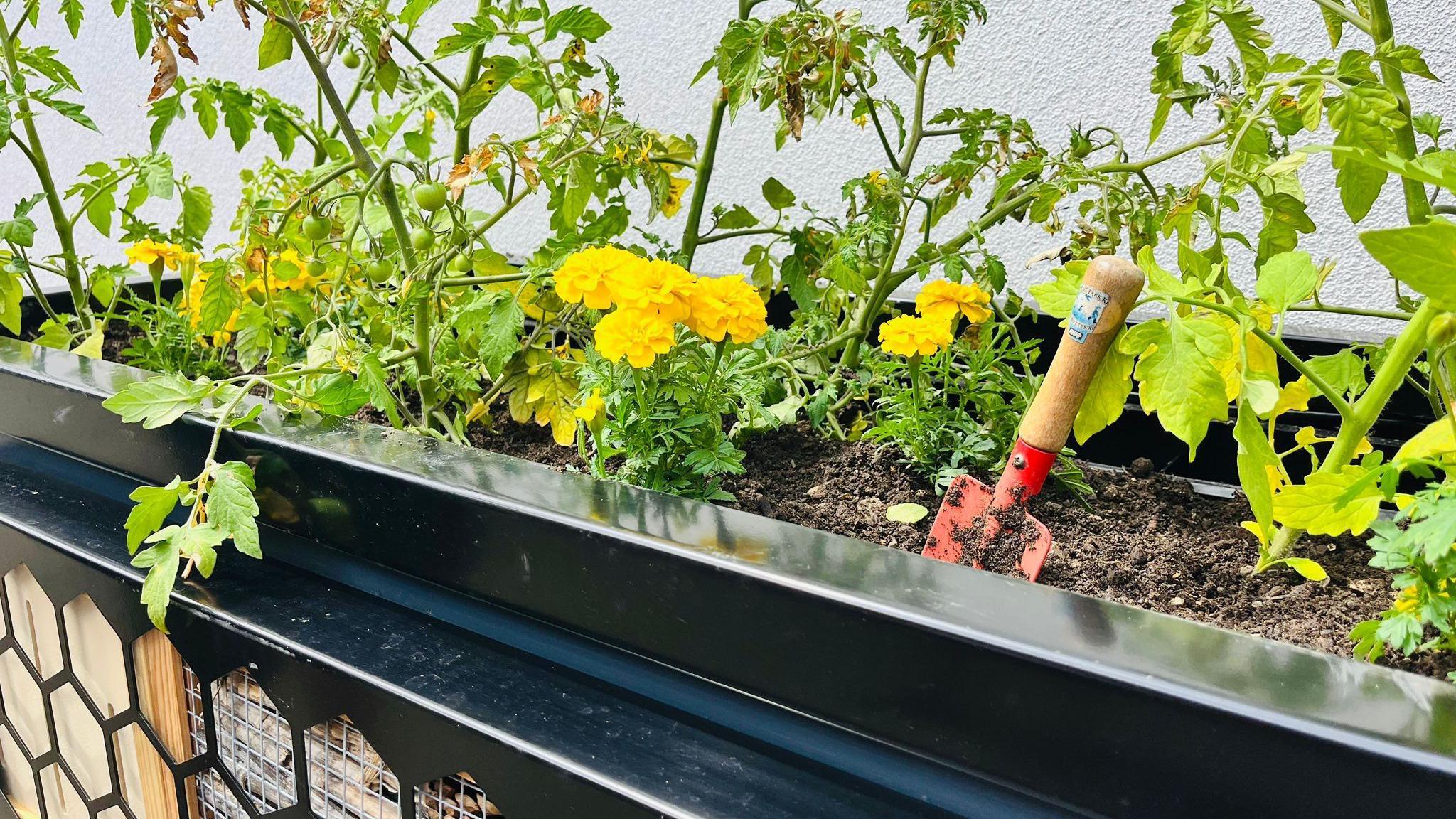Playground planters aim to tackle school flooding

The planters were used for a variety of crops over the summer term
- Published
Flower and vegetable planters installed to teach pupils about biodiversity while also helping to tackle flooding have been hailed a success.
The 32 specialist planters at seven primary schools in Northamptonshire are designed to help reduce surface water flooding.
They include "integrated wildlife habitats" and take water directly from school guttering, reducing pressure on drainage systems, organisers said.
"It's been fantastic to work with so many schools who were so enthusiastic to get on board and bring these smart planters into their play areas," support officer Rickileigh Edwards said.
"The beauty of these units is that they combine practical flood management with an opportunity to inspire learning about water, nature and climate resilience," he added.
Resilience and Innovation Northants (RAIN) Project, which led the scheme, said each stainless steel planter contained 10 wildlife habitats, from bee hotels and hedgehog houses to amphibian refuges and hoverfly homes.
Six planters at Oakley Vale Primary School in Corby were fitted with monitoring equipment to allow children and the RAIN team to track rainfall and water capture over time, while the planters were used to grow flowers, tomatoes, herbs and lettuce.
Planters are also at five schools around Northampton and Brigstock Latham Primary near Kettering.
The RAIN Project is funded by Defra as part of the £200m flood and coastal resilience innovation programme, managed by the Environment Agency.
Anglian Water also contributed more than £50,000 towards the planters through their Flood Risk Partnership Funding Project.
Get in touch
Do you have a story suggestion for Northamptonshire?
Follow Northamptonshire news on BBC Sounds, Facebook, external, Instagram, external and X, external.
Related topics
More stories like this
- Published5 March

- Published13 July

- Published11 July
